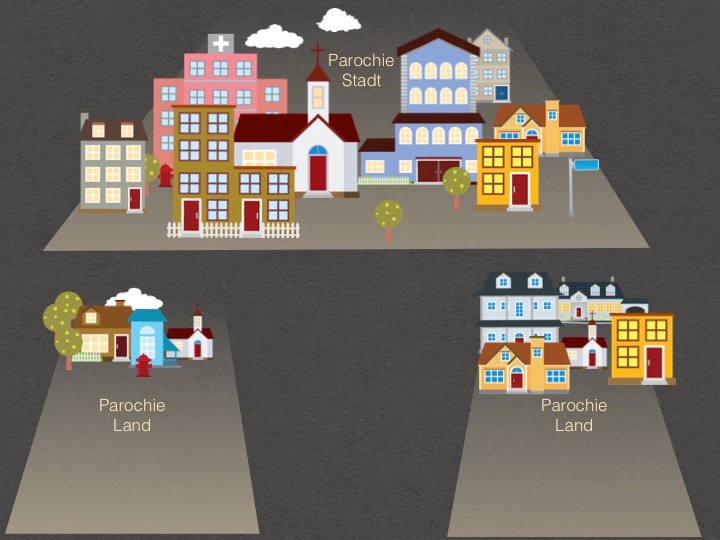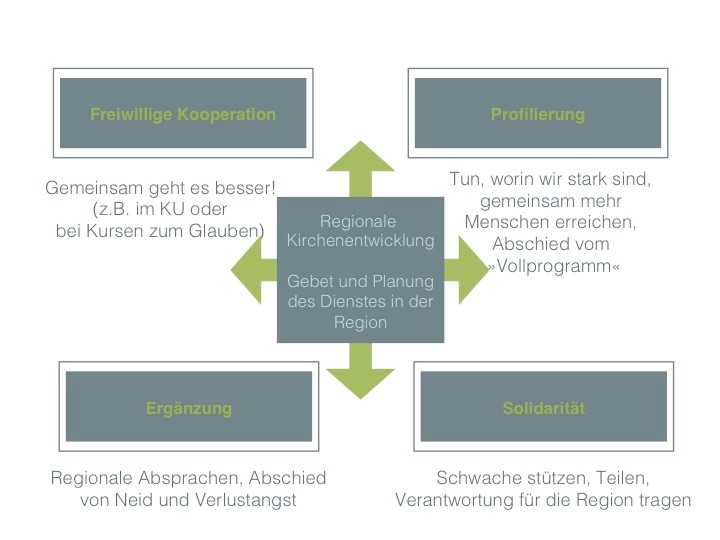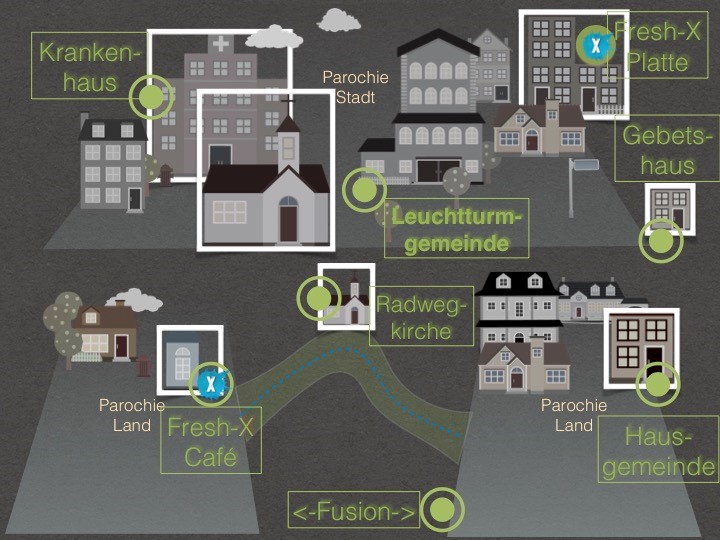Church development combining local and regional strength

"Local Church Development" focuses on the mutual responsibility churches have for their region. With good coordination and management local partners obtain relief and are able to distinguish themselves. A local presence is not possible without regional supplement. Therefore, "Local Church Development" plays in the field of voluntary cooperation, profiling, supplement and solidarity.

The regional organisational task is in the context of change which impacts churches as part of society: individualisation, secularisation, urbanisation, globalisation, demographic development and the temporal placement as late modernity or post modernity are great challenges. This anaylsis of the current affairs explain why the church as an institution and organisation experiences pressure to which it reacts with structual changes and cost savings.
In addition to the current diagnosis the structure is analysed in order to develop a concrete basis for church development: How do the church structures have to change in order to meet the canonical demands of church members in sparsely populated areas? Should the centres or the periphery be supported in order to be capable of acting and to fulfill the mission of church? How does the church have to deal with the pruning without falling into an organisational depression? How can resources be distributed equitably? And how sould we respond to the loss of relevance?
In order to answer these questions the practical-theological research cooperates with geography, regional development and regional planning. Additionally, analyses from political sciences and sociology are used to develop preferable cybernetic options.
The field of research "Local Church Development" at the IEEG benefits from the expertise of rural areas, the researches about innovation and the field of research "Guiding and leading in church". The centre for mission in the region (ZMiR) provides practical knowledge and experiences in regional development.
"Local Church Development" does not only govern parishes, but also different, new forms of being church. Parishes keep their rights and change wherever it is necessary. In addiotion there are new forms of being church which enrich the region and contribute to the mission of church.

That means that the parishes form a net of lights of church communities which serve at different places for the mission of church.
"Local Church Development" assumes that growth and pruning take place simultaneously and close together. However, the bigger part of the church has to deal with shrinkage and periphery. Cybernetic options on a basis of areal development should be formed which avoid one-dimensional growth strategies for regions of pruning, and the other way around: pruning strategies for regions of growth.
Contact
Michael Herbst
Benjamin Stahl

